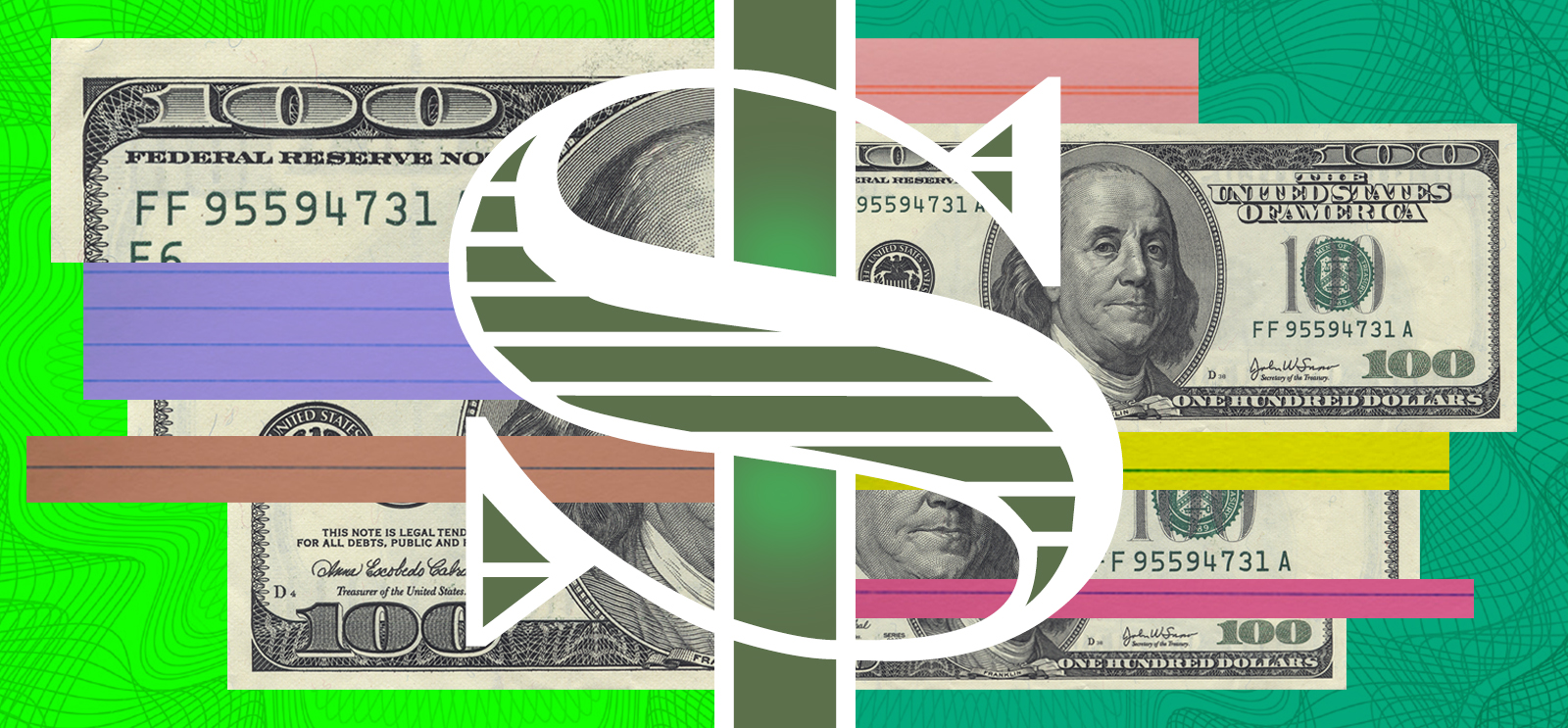
(Photo collages by Joy Olivia Miller; 2017 Reddit AMA portrait courtesy Harold Pollack)
Professor Harold Pollack has an index card, a book, and endless patience for your questions.
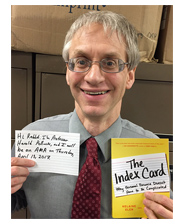 Remember the index card of financial advice that went viral online? Its creator—Harold Pollack, the Helen Ross Professor in the School of Social Service Administration—transformed the 10 simple rules on that note card into his 2016 book, The Index Card: Why Personal Finance Doesn’t Have to Be Complicated, cowritten with financial journalist Helaine Olen. A paperback version came out in March.
Remember the index card of financial advice that went viral online? Its creator—Harold Pollack, the Helen Ross Professor in the School of Social Service Administration—transformed the 10 simple rules on that note card into his 2016 book, The Index Card: Why Personal Finance Doesn’t Have to Be Complicated, cowritten with financial journalist Helaine Olen. A paperback version came out in March.
But wait, there’s more: below are answers to questions pulled from Pollack’s Reddit “Ask Me Anything” sessions in 2016 and 2017.
- HOW, WHY, AND WHERE TO SAVE MONEY
- USE CREDIT WITHOUT GOING BROKE
- INVEST YOUR MONEY WITHOUT LOSING IT ALL
- DEBT, DEBT, AND MORE DEBT
- WHY FINANCIAL ADVISERS ARE WORTH $250 PER HOUR
- BIG CHUNKS OF MONEY
- YES, YOU SHOULD PLAN FOR RETIREMENT RIGHT NOW
- WHAT’S THE SOCIAL SAFETY NET, AND WHY SHOULD YOU CARE?
- THE INDEX CARD (free), THE BOOK ($10), AND THE DIFFERENCE
- HACKS, CLICHÉS, CHEAP THRILLS, AND MORE

HOW, WHY, AND WHERE TO SAVE MONEY
“Save 20 percent of your money.” Do you mean save 20 percent and then distribute that into different categories like retirement funds and savings accounts?
Yup.
I have close to $10,000 just sitting in a bank account. What should I do?
You are $10,000 ahead of many people. Consider how you can start saving for your retirement through your employer or a Roth IRA, and make sure you have no credit card debt.
How would it impact the US economy if everyone followed advice like “save 20 percent of your money”?
The economy would be fine. We have instruments of fiscal and monetary policy to address the unlikely contingency that we become so thrifty that this damages the macroeconomy.
I’m trying to get a handle on thinking for the future and paying down my student loans. I’ve got a 401(k) and a savings account. Any advice on small steps to success?
Be methodical. Live below your means. Emphasize your 401(k) for the long run due to the employer match and the tax advantages.
Make most of your savings automatic. One nice idea is to automatically deduct from your paycheck into accounts that you give a formal or informal name, e.g., the new house account, son’s college account, and so on. Whatever gives you mojo.
Life won’t change overnight, but in a few years you will start to see things accumulate.
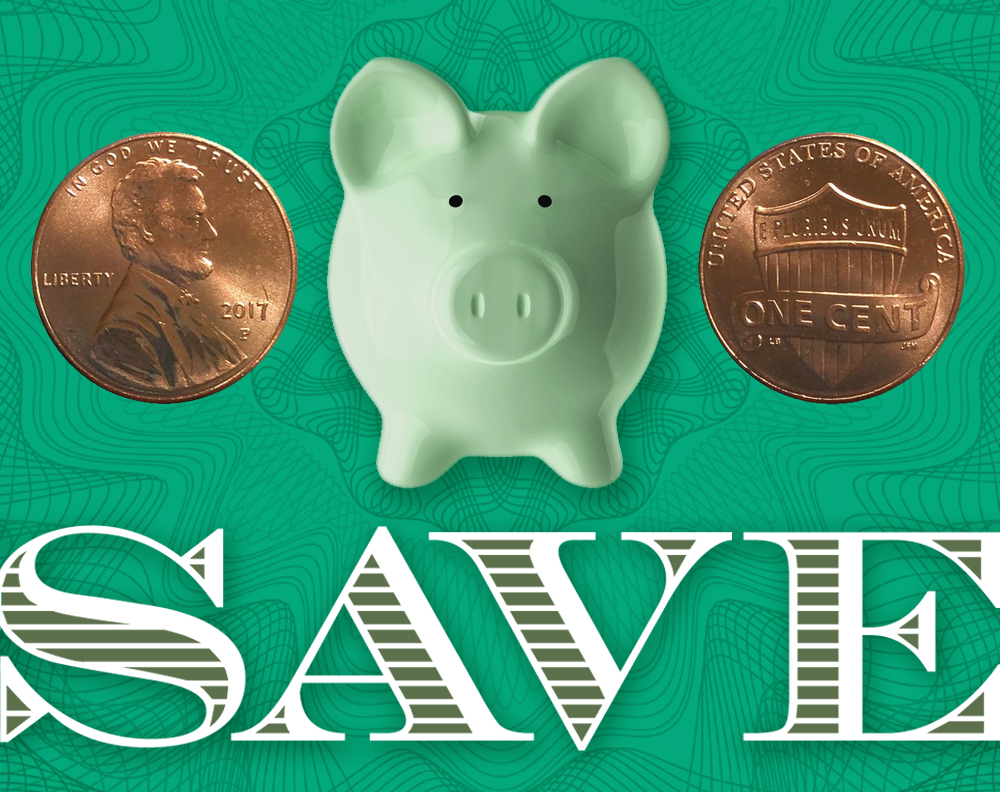
I have a lot of money just sitting in a savings account. I want to keep some for a future down payment on a house and available for quick access, but I’m unsure how much to throw into retirement accounts.
It’s great that you’re a saver. If you have too much in a simple savings account, you might start by maximizing your tax-advantaged contributions now to Roth, 401(k), and other available savings vehicles. You can contribute a lot to a 401(k) if you have access to one, and draw down some of the savings you have now in the bank. You can also put a chunk of your savings account into a CD and do a little better.

USE CREDIT WITHOUT GOING BROKE
I’m a college student. People tell me that using a credit card is crucial for building credit. How important do you think they are?
It’s not a bad idea to have plastic, but the most important thing is not to run up credit card debt. Ignore reward programs. They lead many of us to spend money more carelessly.
If I keep my credit card balance at $0, will I ever gain credit? Should you keep the balance around 25–35 percent?
Use your credit card transactionally, and pay it off in full at the end of each month.
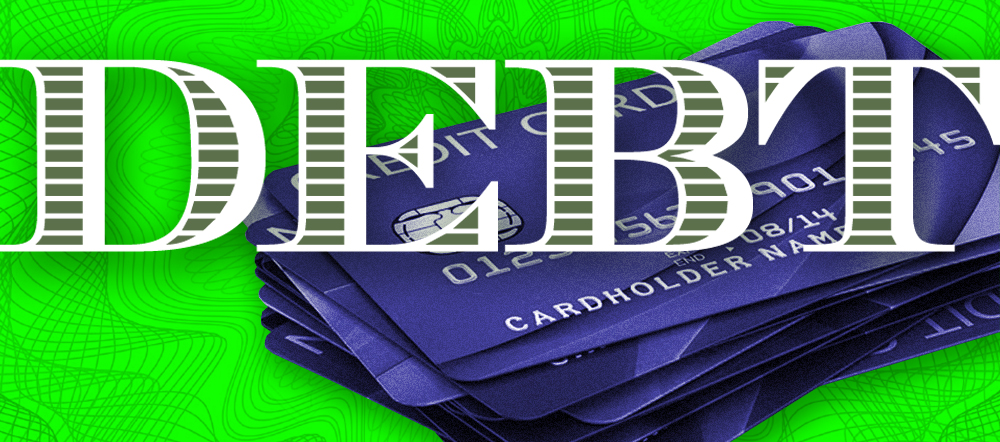
I see a lot advice about avoiding credit card debt. How should a recent college graduate build credit?
Building credit is less valuable than building wealth. If you methodically increase your wealth and use credit cards transactionally, you will be fine.
I’m struggling to decide between debit cards or credit cards. I find it easier to save with debit cards; however, I have lost a debit card before and been the victim of fraudulent charges. I’m inclined to use a credit card for more robust protection.
I agree that debit cards are nerve-racking in their lack of protections. They also don’t work for some purchases, like car rentals. But, if it helps you to manage your money to use a debit card, that’s a huge plus. You might set up a separate account with $500 or whatever for this purpose. That allows you to limit the damage if someone gets hold of the card.

INVEST YOUR MONEY WITHOUT LOSING IT ALL
Would you say index exchange–traded funds (ETFs) are a fair substitute for your advice of getting broad mutual funds?
These are pretty similar. I use low-fee stock index funds and don’t particularly find any need for ETFs. The ability to swiftly move in and out of the market is a bug, not a feature.
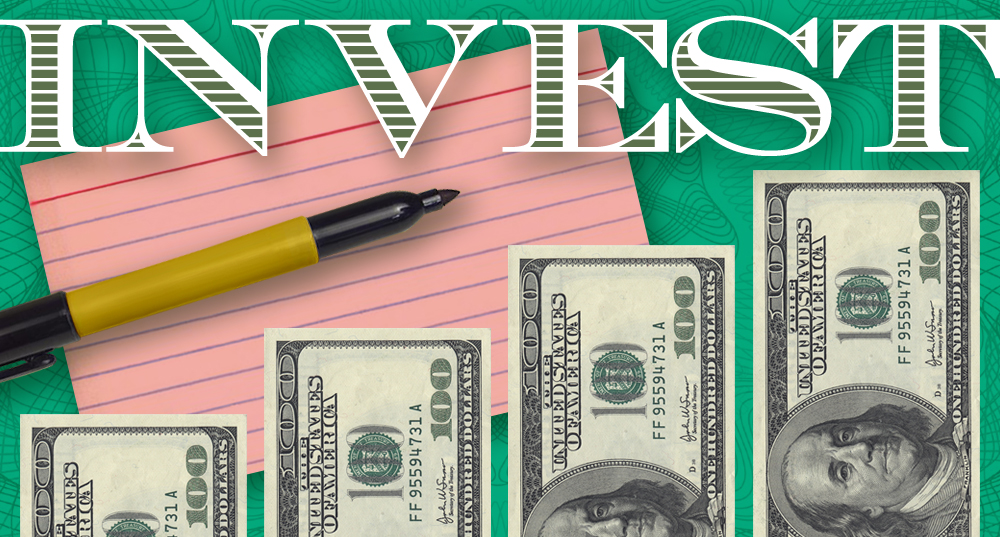
Do you really believe that purchasing individual securities is a bad idea? I graduated from college in 2010, and I purchased a lot of individual stocks when the market was down. My portfolio beat the market a few years in a row. I cashed it out at a substantial profit.
Congrats on successful investing—but, yes.
Would you talk about choosing index funds?
My entire investment portfolio is spread across maybe five index funds. A total stock market index fund with low fees is good. I don’t want to endorse a particular commercial product, but the biggest firms have low-fee versions of this. No reason to pay over 0.2 percent per year. Make sure to look up all the fees.

DEBT, DEBT, AND MORE DEBT
If you had to add one line to your index card about paying off student loans, what would it be?
No need to be super aggressive in paying off your student loans. The best single source of information is the Department of Education’s website. It’s terrific. We talk in the book about some of the basics of consolidating loans, payment plans, and more.
My wife and I have close to $100,000 in unsecured debt of varying kinds. We make less than $100,000 annually, and we each have a 401(k). I have a pension from an old employer worth about $26,000. We’re not behind on payments, but it seems insurmountable. Should we consolidate our debt through a second mortgage? Liquidate my pension?
I would not liquidate the pension. A second mortgage would probably lower your interest rate, but it also turns an unsecured debt into one that puts your home at risk. Definitely see an accountant, credit counselor, or a financial adviser to get this right.
What do you think about refinancing student loans?
A few pointers:
Think federal first when you borrow. Federal loans have the best protections and refinancing/payback options.
When you consolidate or refinance, don’t mix federal and private loans. That undermines many of the protections and options that come with public loans.
Be careful with private counselors. They sometimes have mixed incentives to steer you into less-than-ideal refinancing options.

WHY FINANCIAL ADVISERS ARE WORTH $250 PER HOUR
Do you value financial advisers?
I actually do—as long as you are the only person paying them and they commit to a fiduciary standard.
In a famous empirical study, the majority of audited advisers steered investors away from excellent and economical investments into wasteful actively managed funds that, oddly enough, tend to pay larger commissions to advisers.
This is a real problem, but it shouldn’t sour you on the importance of seeking financial advice. Just have a sympathetic stranger talking through sensitive issues can be quite valuable. A financial adviser provides critical distance and another pair of eyes for some important life decisions.
How do you find a financial adviser?
Pay the adviser out of your own pocket. If you’re not sure if an adviser gets paid on commission, ask.
You might feel some initial sticker shock when asked to pay, say, $250 an hour. But you’ll pay a lot more in the long run if you go with a nominally free financial professional whose business model is to make extra money by steering customers.

BIG CHUNKS OF MONEY
Is buying a new car wasteful?
I like to buy used and ride cars into the ground. I drive a dented 2004 Elantra. Insurance and payments are cheaper, but I don’t care about my car. Consumer Reports gives good tips in its car buying guide.
I’m about to move to take a tenure track professor job, but I only have $5,000 in savings. Must I throw money away on rent as I save up $30,000 for a house down payment?
You have lots of reasons to be a bit patient—$5,000 is not much of a financial reserve to move into a new house.
I would recommend that you initially rent. You’ll have more flexibility that way, and you can learn about the area. This will give you more time to save your money too. I wish that I had rented my first year living in Chicagoland. I might have made different housing choices.
I’m currently maxing out my mortgage and plan to have it paid just before the end of the year. What should I do with the money I am paying into my mortgage once I’ve finished?
Congrats. I’d recommend simple index funds.
If I’m looking to save a small pool of money for a specific project (a new garage), where’s the best place to park the money?
For a short-term project, a CD is basically ok.

YES, YOU SHOULD PLAN FOR RETIREMENT RIGHT NOW
My employer doesn’t offer any 401(k) matching. Are there other investment avenues that I should look into?
A 401(k) has tax advantages. You get lower fees than you probably could get on your own and there are legal protections. It’s better to have an employer match, but it’s still good to do.
Does it make a difference how many savings/retirement products I use? I have a joint investment account, a Roth IRA, a 401(k), and a pension.
No need for a large mix. Focus on low-fee index funds with a reasonable mix of stock and bond funds in each of these vehicles. It’s great that you have a pension. That provides a wonderful, increasingly rare foundation.
I’m a college student with a part-time job. I want to open up an IRA this summer. Will it be an easy transition to a 401(k) when I start a true career? Is it worth starting the IRA at all?
Open a Roth IRA now. That will serve you well. No need to roll it into anything.

WHAT’S THE SOCIAL SAFETY NET, AND WHY SHOULD YOU CARE?
Why do you suggest supporting social insurance programs?
Although I am a diligent saver and investor, I would be bankrupt were it not for Medicare, Medicaid, and Social Security supporting my brother-in-law’s extensive needs. I want to honor that aspect of my story and not pretend that everyone could be as fortunate as a tenured university professor if we all simply followed good investment advice.
We have to protect each other against serious life risks that could crush any one of us were we forced to face these risks on our own. That’s what social insurance means to me.
I even made a political ad about it.
I’m curious about your thoughts on another simple policy: giving poor people money. Do you support a non-means-tested universal basic income?
Dylan Matthews at Vox has written beautifully about universal basic income. I am ambivalent for two reasons.
First, Americans value income supports that honor the dignity of work. So the politics get tough on universal basic income.
Second, some universal basic income proponents see it as a way to supplant the welfare bureaucracy and a thicket of categorical forms of assistance. This doesn’t strike me as likely or where I would go.
Having said that, I do believe that every American is entitled to a minimum level of economic security. So in some form I would support some versions of universal basic income.

THE INDEX CARD (free), THE BOOK ($10), AND THE DIFFERENCE
Are you selling the index card, or do I have to buy the whole book?
You can see the original index card by itself for free at the Washington Post.
Does the book provide any evidence suggesting your strategies actually work?
The book is evidence based. For example, there is significant evidence that index funds outperform more than 90 percent of actively managed mutual funds. This recent Wall Street Journal story includes a finding that is pretty typical. See also my coauthor Helaine Olen’s book Pound Foolish.
What inspired you to write your book?
I was sloppy about many things until I was about 40 years old, when my mother-in-law died tragically and her intellectually disabled son needed to move into our home. My wife left the workforce to care for him, and we realized that we would be living a different life from what we expected. Those family challenges got me to think much more seriously about financial planning.
Why should anyone buy your book when all they need to know is on a single index card?
Arthur Ashe was once asked how he beat Jimmy Connors in the Wimbledon Final, and he said: “I hit the ball low.” The reporters complained: “Everyone knows you’re supposed to hit the ball low against Connors.” Ashe responded: “But I actually did.”
That’s where the skill is.
Some items on the index card are self-explanatory—e.g., never buy or sell individual stocks. Others require some explanation. Our short book is pretty accessible and around 10 bucks.
Does the advice in your book apply to people outside of America?
The saving and investing advice applies, as does the advice to stick to simple market index funds. The mechanics of taxation and retirement saving will be different.
Financial professionals will operate on different standards, but identifying the equivalent of fee-only fiduciary advisers remains important.
Our housing advice is probably contextual, though I stand by the warning that your home is a “use-good,” not your primary investment.

HACKS, CLICHÉS, CHEAP THRILLS, AND MORE
Do you feel that experts tend to over-complicate discussions regarding personal finance?
Yes. One fundamental problem is that the best financial advice is really boring. So financial media has often thrived on overly complicated and harmful recommendations.
There is a huge literature documenting that individual investors are amazingly bad at picking stocks, and that almost all professionally managed mutual funds underperform a low-cost market index fund.
If you could give millennials one piece of advice regarding their finances, what would it be and why?
I will cheat and give two: Pay off your credit card every month and start to save early. Make compound interest your friend.
Do you have any “tax hacks” for young people?
Use tax day as an opportunity to do two things:
Understand how you spend. Read over all your credit card statements. Look over your checkbook. April 15 is often the time that I find that subscription I no longer need, like the service that I am autobilled on my credit card.
Open an IRA. Often a Roth IRA is the best option for young people. It offers no immediate tax deduction, but the investment gains won’t be taxed. You can also withdraw the principal from your Roth IRA without penalty in a financial emergency. Your future self will thank you.
A few more tips: Make sure that you are maximizing your retirement contributions. If you are self-employed or have consulting income, an SEP-IRA is easy to set up at Vanguard or a similar website.
What’s your favorite financial advice cliché?
I have two. “If it’s free, you are the product” really applies to financial professional advice. “If you sit down at a poker game, and you don’t know who the sucker is—it’s you” applies to many matters of academic politics.
Which other investment books would you recommend?
Jonathan Clements, Zac Bissonnette, Carl Richards, and Jane Bryant Quinn wrote books that are quite good. A Random Walk Down Wall Street and Personal Finance for Dummies are also excellent.
Any additional recommendations?
I’ll close with more solid pieces of advice:
Seek cheap thrills. Cultivate some new cheap sources of pleasure that protect your budget without making you feel that you’re missing out. Cheap thrills are often shared experiences with people we like or love. A long line of psychology research initiated by Thomas Gilovich documents that memorable experiences give us more lasting happiness than do enjoyable new things.
Quit smoking. Smoking is expensive. The national average price of cigarettes is about $6.25 per pack. More than $10 in many localities. So pack-a-day smokers are spending thousands of dollars on cigarettes every year. Do something you will enjoy with some of the money that you save.
Watch your drinking, particularly when dining out. Alcohol has a notoriously high markup on restaurant menus. Economists debate why the markup is so high. One theory holds that consumers like to buy expensive wine to signal their affluence and sophistication. Another theory holds that restaurants dramatically overcharge for things like coffee and wine because these complement the ambience, which is nominally free. Whatever the explanation, you save a lot of money by not buying into it.
